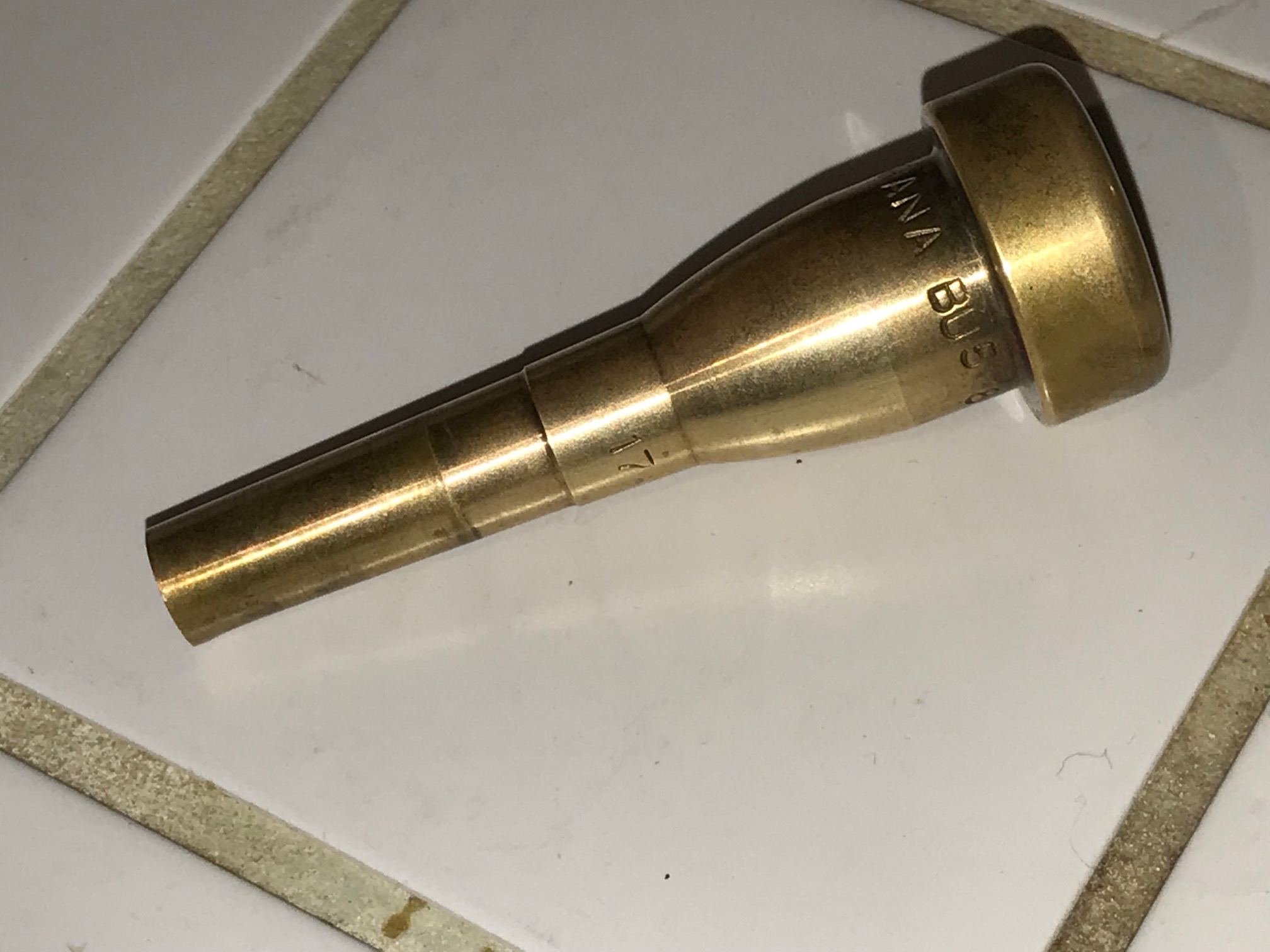#AskTamara: Q. Could A Vintage Leaded Brass Mouthpiece Cause Kidney Failure In A Trumpet Player? A. Maybe
#AskTamara
Question: Could a vintage leaded brass mouthpiece cause (or contribute to) kidney failure in a professional trumpet player?
Answer: Maybe.
The vintage (c. 1980s or earlier) trumpet mouthpiece shown here tested positive for a relatively high level of lead for leaded brass (22,200 ppm lead.)
It is a bare leaded brass mouthpiece that is not coated or plated in any way and initially tested positive for lead when tested with a LeadCheck swab (the swab liquid turned pink immediately upon being dropped on to the mouthpiece.)
This is the first time I have actually seen a leaded brass mouthpiece without any plating or coating (and I have tested a few dozen of them over the years.)

This mouthpiece represents a cherished piece of history for my sons. We were told that it was used for three decades (or more) by their band leader (a legendary award winning trumpet player) who died far too young of kidney failure, struggling with diabetes for the final chapter of his life.
Connecting the dots (that he died of kidney failure and used a bare leaded brass mouthpiece for over 30 years) was a very upsetting moment for our family, especially since my 16 year old son is a trumpet player!
To my knowledge, no studies have been done specifically on the impact of bare/exposed leaded brass mouthpiece use on their users.
However… kidney failure is one of the diseases that has been solidly linked to lead exposure in the medical research done to date. As a result, I would make an educated guess that it is very possible that daily prolonged use of an unplated leaded brass mouthpiece (trumpet players typically practice or play up to 4 hours a day or more) could contribute to or cause kidney failure in the user.
I would also imagine that this is not a common concern in 2018.
Newer leaded brass mouthpieces are generally silver-plated with a relatively thick layer of plating, however the silver plating has been known to wear over time under heavy use (like what might be seen with student instruments).
Professional trumpet players and modern professional trumpet mouthpiece manufacturers today (in 2018) are aware of the potential toxicity concern and now alternate choices for mouth pieces are commonly available including solid silver mouth pieces, titanium mouth pieces, stainless mouth pieces and even gold plated silver mouth pieces.
When a professional trumpet player who is a friend of ours last came to the Pacific Northwest on tour he told me that he made a special stop to a trumpet mouthpiece manufacture in Washington State specifically to purchase a non-toxic mouthpiece made of titanium. When I first mentioned the presence of lead in mouthpieces of many brass instruments to him, he was fully aware of the concern.
For those who want to look more at the potential link between the use of a leaded brass mouthpiece and kidney failure here are some links to start your inquiry:
- Environmental Lead Exposure Accelerates Progressive Diabetic Nephropathy in Type II Diabetic Patients: https://www.hindawi.com/journals/bmri/2013/742545/
- “Chronic lead poisoning: a “forgotten” cause of renal disease.” https://www.ncbi.nlm.nih.gov/pubmed/17237897
- Lead, Diabetes, Hypertension, and Renal Function: The Normative Aging Study: https://www.ncbi.nlm.nih.gov/pmc/articles/PMC1247478/
- Renal effects of environmental and occupational lead exposure: https://www.ncbi.nlm.nih.gov/pmc/articles/PMC2796746/
- Low level lead exposure harms kidneys (2003): https://www.webmd.com/a-to-z-guides/news/20030122/low-level-lead-exposure-harms-kidneys#1
- From the National Kidney Foundation: https://www.kidney.org/atoz/content/lead-exposure-and-kidney-function
- An article from the National Institutes For Health: https://www.ncbi.nlm.nih.gov/pmc/articles/PMC1038152/
- And there are many many more links to studies and articles with a google search for: “kidney failure lead exposure”
This is so personal, and makes us very sad to think that lead exposure may have contributed to our good friend’s declining health, but sharing this is an important piece of information for musicians to know (especially if they are considering using vintage brass instruments or components.)
As always, please let me know if you have any questions.
Tamara Rubin
#LeadSafeMama
Leaded Brass Trumpet Mouthpiece (Vintage, 30+ years old)
- Lead* (Pb): 22,200 +/- 1,000 ppm, 2%
- Tin (Sn): 1,251 +/- 171 ppm
- Zinc (Zn): 359,200 +/- 2,900 ppm, 36%
- Copper (Cu): 613,600 +/- 3,500 ppm, 61%
- Iron (Fe): 1,589 +/- 291 ppm
- Silver (Ag): 155 +/- 60 ppm
- No other elemental metals detected.
*For context, modern toys manufactured for use by children are considered unsafe for children if the paint or coating is positive for lead at levels of 90 ppm or higher or the substrate (base material) is positive for lead at 100 ppm lead or higher. Additionally, LeadCheck swabs have a low-threshold limit of detection of 600 ppm and only detect lead on the surface of the object they are testing.
Never Miss an Important Article Again!
Join our Email List



I read your post with interest. I can understand the presence of lead in the the alloy because of greater ease of machining. But my question is, if most mouthpieces are silver plated, doesn’t that create a barrier between the base metal and the player’s lip?